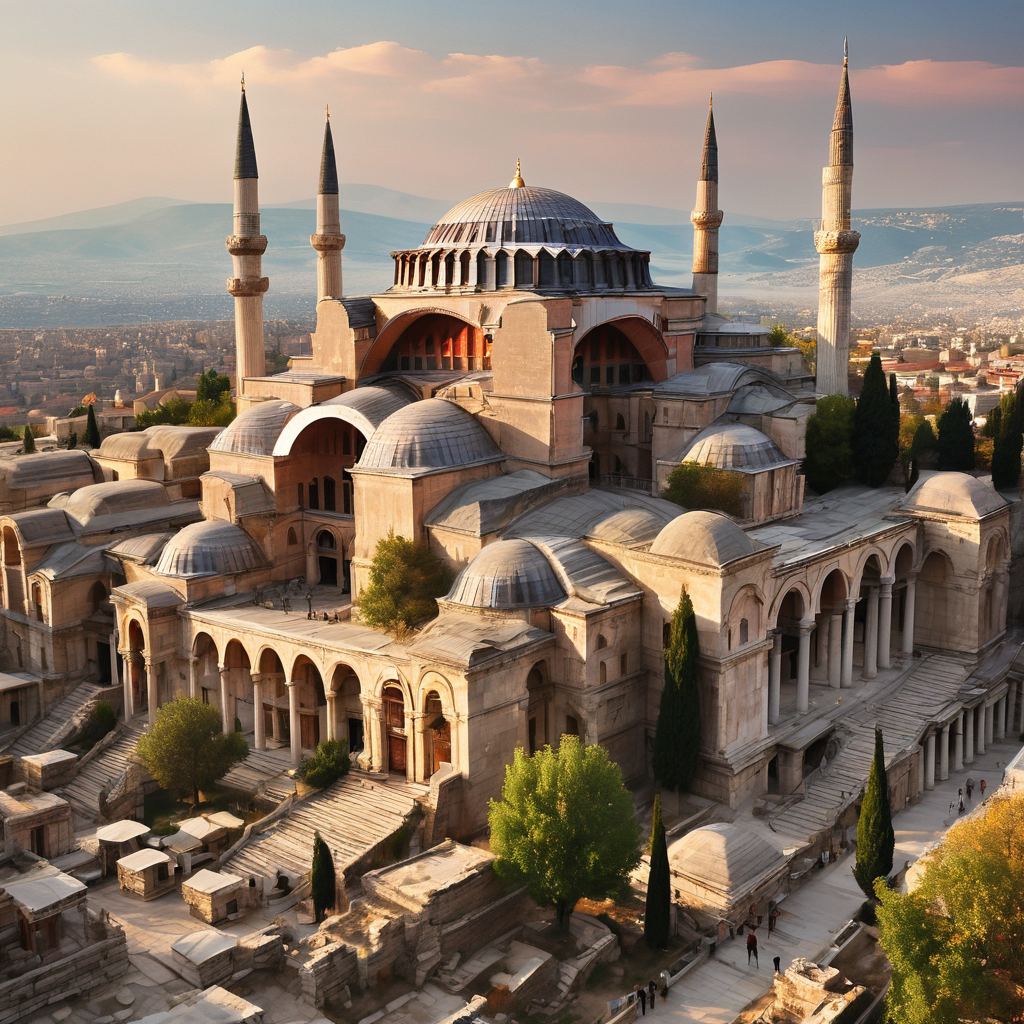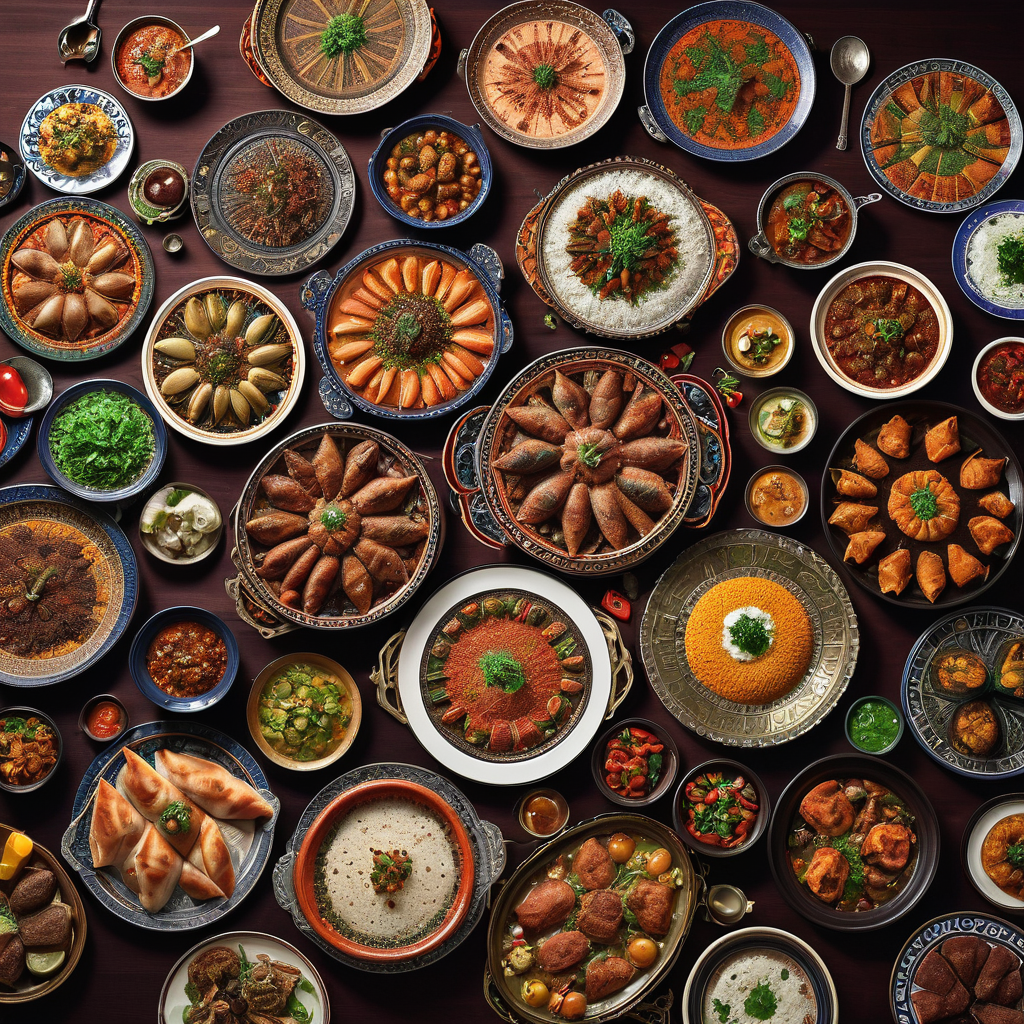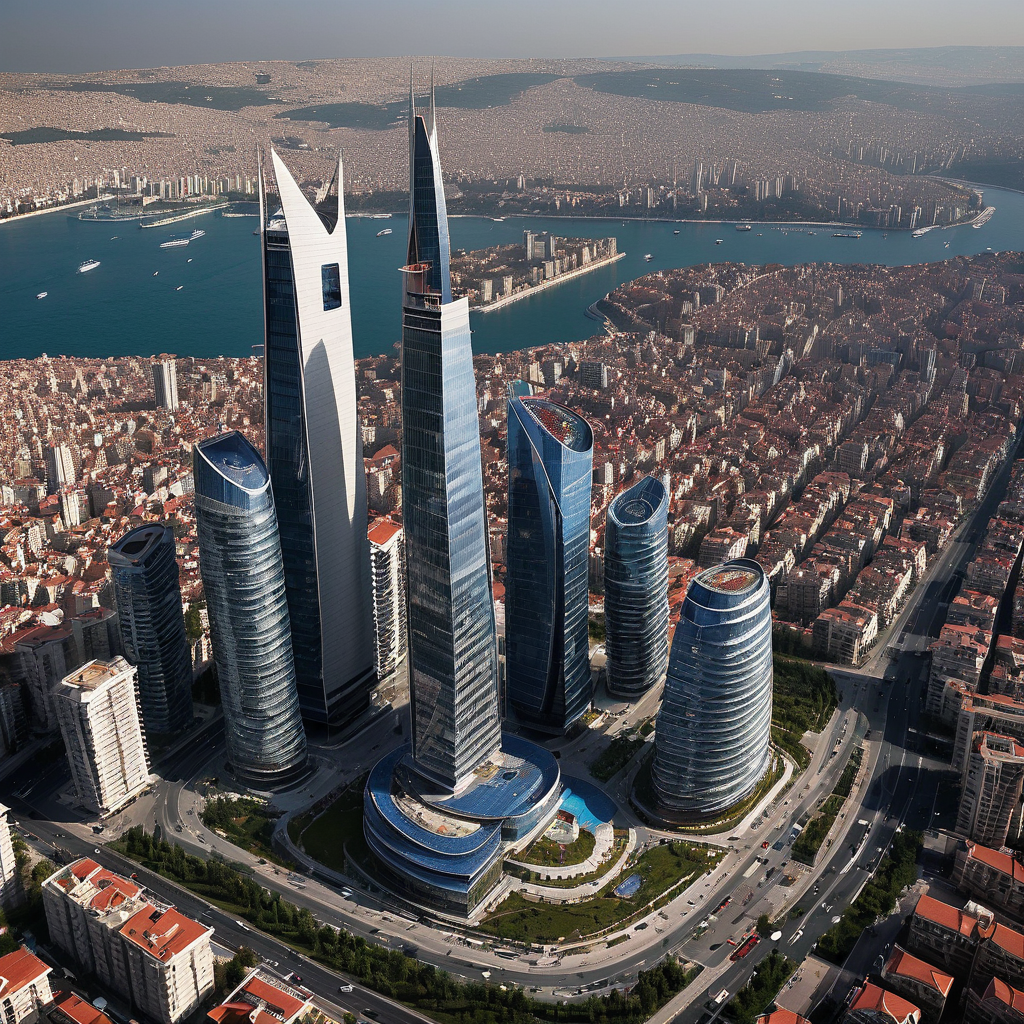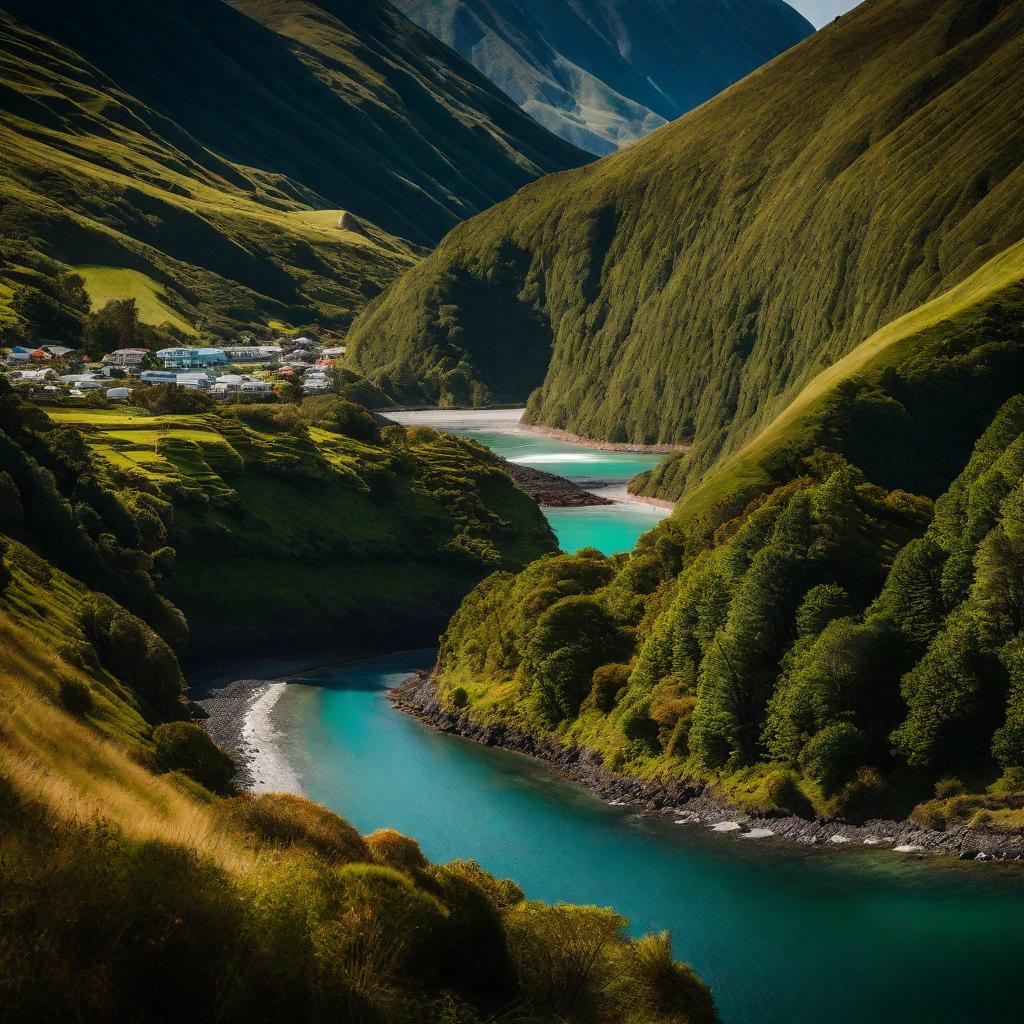1. Introduction : Turkey, Where Ancient Culture Meets Modern Flair

Turkey, Where Ancient Culture Meets Modern Flair, a land known for its rich history, unique of cultures, and Turkey, Where Ancient Culture Meets Modern Flair, harmonious coexistence of the past and present, offers a mesmerizing journey for travelers seeking a glimpse into the tapestry of time.
A. Turkey’s Rich History
Turkey stands as a living testament to ancient civilizations, with landmarks such as the ancient city of Ephesus, the stunning Hagia Sophia, and the mystical caves of Cappadocia. From the grandeur of the Ottoman Empire to the ruins of Troy, the echoes of history resonate through the bustling streets and serene landscapes of this enchanting country.
The Hittites, Romans, Byzantines, and Ottomans have all left their mark on Turkey, creating a diverse historical tapestry that attracts history enthusiasts from around the globe.
Exploring sites like the Library of Celsus in Ephesus or the Topkapi Palace in Istanbul allows visitors to step back in time and immerse themselves in the fascinating narratives of Turkey’s past.
Hittites (c. 1600–1178 BCE):
- One of the earliest known civilizations in Anatolia.
- Capital: Hattusa, known for its impressive fortifications and palaces.
- Contributions: Legal and administrative systems, advanced ironworking techniques.
Trojans (c. 3000–1200 BCE):
- Ancient city of Troy, immortalized in Homer’s epic, the Iliad.
- Location: Northwestern Turkey, near the Dardanelles.
Phrygians and Urartians (c. 1200–600 BCE):
- Phrygians: Known for their King Midas, who, according to legend, turned everything he touched into gold.
- Urartians: A civilization in eastern Turkey, known for their advanced architecture and irrigation systems.
Classical Antiquity
Greeks (c. 8th century BCE – 4th century BCE):
- Coastal cities like Ephesus, Miletus, and Halicarnassus were major centers of Greek culture and learning.
- Contributions: Philosophy, science, art, and architecture.
Persians (c. 546–334 BCE):
- Achaemenid Empire controlled Anatolia after defeating the Lydians.
- Influence: Persian administrative practices and infrastructure.
Alexander the Great and Hellenistic Period (334–30 BCE):
- Alexander the Great conquered Anatolia, spreading Greek culture throughout the region.
- Major cities like Pergamon and Antioch became centers of Hellenistic culture.
Roman and Byzantine Empires
Roman Empire (c. 30 BCE – 395 CE):
- Anatolia became a part of the Roman Empire.
- Development: Infrastructure such as roads, aqueducts, and theaters.
- Major cities: Ephesus, Antioch, and Byzantium (later Constantinople).
Byzantine Empire (395–1453 CE):
- Eastern Roman Empire with its capital in Constantinople.
- Significant events: Spread of Christianity, construction of Hagia Sophia.
- Decline: Gradual loss of territories to rising Islamic powers.
Seljuk and Ottoman Empires
Seljuk Empire (c. 1037–1194 CE):
- Central Asian Turks who established their rule over Anatolia.
- Battle of Manzikert (1071): Marked the beginning of Turkish dominance in Anatolia.
- Contributions: Islamic culture, architecture, and education.
Ottoman Empire (1299–1922 CE):
- Founded by Osman I, it grew to become one of the most powerful empires in history.
- Expansion: At its height, it spanned three continents, including Southeast Europe, Western Asia, and North Africa.
- Major achievements: Architectural marvels like the Blue Mosque, legal and administrative reforms, cultural and artistic advancements.
- Decline: Began in the late 17th century, leading to eventual collapse after World War I.
Modern Era
- Republic of Turkey (1923–present):
- Founded by Mustafa Kemal Atatürk after the fall of the Ottoman Empire.
- Reforms: Secularization, modernization, and Westernization of Turkish society.
- Recent developments: Economic growth, political changes, and a blend of traditional and contemporary culture.
B. A Melting Pot of Cultures
Turkey’s location at the crossroads of Europe, Asia, and the Middle East has shaped its identity as a melting pot of cultures. With influences from Greek, Persian, Arab, and Central Asian civilizations, Turkey offers a vibrant mosaic of traditions, languages, and culinary delights.
The bustling bazaars of Istanbul, filled with the aromas of spices and the sounds of bargaining, showcase the diversity of Turkish culture.
From the whirling dervishes of Konya to the vibrant colors of traditional Turkish rugs, every corner of Turkey offers a glimpse into the country’s rich cultural heritage.
C. The Perfect Blend of Past and Present
Turkey seamlessly combines its rich history with modern advancements, creating a dynamic landscape where ancient ruins coexist with skyscrapers and centuries-old traditions mingle with contemporary lifestyles. Whether sipping tea at a traditional çay bahçesi or exploring the modern art scene in Istanbul, visitors can witness the perfect blend of past and present in Turkey.
The rapid growth of cities like Istanbul and Ankara reflects Turkey’s embrace of modernity, while preserving its cultural roots.
Festivals like the International Istanbul Jazz Festival and the Konya Whirling Dervishes Festival highlight Turkey’s vibrant arts and entertainment scene, bridging the gap between tradition and innovation.
Turkey’s allure lies in its ability to transport visitors through time, immersing them in the wonders of its rich history, the diversity of its cultures, and the harmonious blend of past and present. A journey to Turkey is not just a trip; it’s a transformative experience that leaves a lasting impression on all who wander through its ancient streets and modern metropolises. So pack your bags and embark on a journey to Turkey, where the past meets the present in perfect harmony.
2. Traditional Turkish Culture

Historical Background of Turkish Cuisine
Turkish cuisine is a mosaic of flavors, shaped by centuries of cultural exchanges and historical events. From the Ottoman Empire’s grandeur to the influences of neighboring Mediterranean, Middle Eastern, and Central Asian cuisines, Turkish food is a testament to the country’s rich history.
Popular Dishes in Turkish Cuisine
Kebabs
Kebabs are a staple of Turkish cuisine, with various types like shish kebab, döner kebab, and Adana kebab. Each type has its unique preparation and regional twist, making them a favorite across the country.
Mezes
Mezes, or small appetizer dishes, are integral to Turkish dining. These include hummus, stuffed grape leaves (dolma), and a variety of salads and dips, often enjoyed with freshly baked bread.
Desserts
Turkish desserts are a sweet indulgence. Baklava, with its layers of filo pastry, nuts, and syrup, is perhaps the most famous. Other notable mentions include Turkish delight (lokum) and the creamy, stretchy ice cream known as dondurma.
Regional Variations in Turkish Cuisine
Aegean Region
The Aegean region’s cuisine emphasizes olive oil, fresh vegetables, and seafood. Dishes like zeytinyağlı (olive oil-based dishes) and fresh fish preparations are common.
Anatolia
Anatolia, the heartland of Turkey, offers hearty meals with meat and grains. Here, you’ll find dishes like mantı (Turkish dumplings) and various stews.
Black Sea Region
Known for its lush green landscapes, the Black Sea region’s cuisine includes corn, kale, and hamsi (anchovies), often prepared in unique and flavorful ways.
Influence of Turkish Cuisine Globally
Turkish cuisine’s influence extends beyond its borders, with dishes like kebabs and baklava gaining international popularity. Turkish restaurants around the world offer a taste of this rich culinary tradition.
Traditional Cooking Methods and Ingredients
Traditional Turkish cooking relies on fresh, local ingredients and time-honored methods. Techniques like grilling, baking in clay ovens, and slow-cooking stews ensure that the flavors are robust and authentic.
Turkish Tea and Coffee Culture
Preparation Methods
Turkish tea is traditionally brewed in a two-tiered teapot, resulting in a strong, flavorful brew. Turkish coffee, on the other hand, is prepared by boiling finely ground coffee beans in a special pot called a cezve, creating a rich, frothy cup of coffee.
Cultural Significance
Tea and coffee are more than just beverages in Turkey; they are integral to social gatherings and daily routines. Offering tea or coffee to guests is a symbol of hospitality and friendship.
Art and Music Heritage
Traditional Turkish Art Forms
Calligraphy
Islamic calligraphy, particularly the art of writing in Arabic script, has a special place in Turkish culture. This art form is seen in historical manuscripts, mosques, and various forms of decorative art.
Ceramics
Turkish ceramics, especially those from Iznik, are renowned for their intricate designs and vibrant colors. These ceramics often feature floral patterns and are used both decoratively and functionally.
Carpets and Kilims
Turkish carpets and kilims are famous worldwide for their craftsmanship and beauty. Each region in Turkey has its distinctive style, often reflecting local traditions and natural surroundings.
Music in Turkish Culture
Classical Turkish Music
Classical Turkish music, rooted in the Ottoman era, is characterized by its unique scales and rhythms. Instruments like the oud, ney, and kanun are central to this genre.
Folk Music
Turkish folk music varies widely across regions, each with its distinct instruments and styles. Common themes include love, nature, and daily life, often performed at local celebrations.
Modern Influences
Modern Turkish music incorporates elements of Western genres, creating a fusion that appeals to a broad audience. Pop, rock, and hip-hop are popular among the younger generation.
Dance and Performance Arts
Whirling Dervishes
The Whirling Dervishes, part of the Mevlevi Order, perform a mesmerizing dance that symbolizes spiritual ascent. This ritual dance, known as Sema, is both a cultural and religious expression.
Folk Dances
Turkish folk dances, such as the lively halay and the elegant zeybek, reflect the country’s regional diversity. These dances are often performed at weddings and festivals, accompanied by traditional music.
Literature and Poetry
Influence of Ottoman Literature
Ottoman literature, with its rich poetic traditions, continues to influence modern Turkish literature. Classical poets like Rumi and Yunus Emre remain beloved figures.
Prominent Turkish Poets and Writers
Modern Turkish literature boasts prominent figures like Orhan Pamuk and Nazım Hikmet. Their works explore themes of identity, history, and social issues, resonating with readers worldwide.
Celebrations and Festivals
National and Religious Festivals
Ramadan and Eid Celebrations
Ramadan, the holy month of fasting, is followed by Eid al-Fitr, a festive celebration marked by family gatherings, feasting, and giving to the needy.
Republic Day
Republic Day, celebrated on October 29th, commemorates the founding of the Turkish Republic. It features parades, concerts, and various public events.
Local Festivals and Cultural Events
Camel Wrestling
Camel wrestling is a unique and ancient sport in Turkey, particularly popular in the Aegean region. These events attract large crowds and are accompanied by music and feasting.
Oil Wrestling
Oil wrestling, or Yağlı Güreş, is another traditional sport where wrestlers, covered in olive oil, compete in matches that test strength and skill.
Traditional Wedding Ceremonies
Engagement Traditions
Engagement ceremonies in Turkey often involve the exchange of gifts and a small celebration with close family members, marking the beginning of the couple’s journey towards marriage.
Wedding Day Customs
Turkish weddings are vibrant affairs with various customs, including the henna night, the bridal procession, and the lavish wedding feast.
New Year and Spring Festivals
Nowruz
Nowruz, the Persian New Year celebrated on the vernal equinox, is observed with various traditions, including cleaning homes, visiting friends and family, and enjoying special foods.
Hidrellez
Hidrellez, marking the arrival of spring, is celebrated with outdoor festivities, music, and dances. It symbolizes renewal and the start of a new season.
3. Modern Influences in Turkey

Urbanization and Architectural Marvels
Turkey’s urban metamorphosis is revolutionizing its cityscapes. Metropolises like Istanbul and Ankara epitomize modern architectural grandeur. Skyscrapers and avant-garde designs coexist with historical edifices. This juxtaposition crafts an unparalleled skyline that magnetizes tourists and professionals. Contemporary structures such as the Istanbul Sapphire and Zorlu Center epitomize Turkey’s advancement. Urban development endeavors are enhancing infrastructure, rendering cities more habitable.
Technological Advancements
Turkey’s technological evolution is swift and transformative. The nation excels in diverse sectors, encompassing telecommunications and software innovation. Tech hubs in urban centers catalyze innovation. Corporations like Turkcell and Vestel spearhead this charge. Prioritizing STEM education ensures a proficient workforce. This technological surge fortifies the economy and augments global competitiveness.
Fashion and Design Trends
Turkey stands as a paragon of fashion and design. Turkish designers are garnering international acclaim. Istanbul Fashion Week highlights local ingenuity and captivates global spectators. Turkish fashion amalgamates traditional motifs with contemporary aesthetics. This blend resonates broadly, preserving cultural heritage. Additionally, Turkish textiles are celebrated for their excellence, bolstering exports and invigorating the fashion industry.
In summation, Turkey’s modern influences manifest in its urban development, technological advancements, and dynamic fashion sphere. These facets contribute to the nation’s burgeoning global stature and cultural richness. Embracing modernity while cherishing tradition delineates Turkey’s distinctive identity.
4. Tourism and Hospitality in Turkey
Turkey is a land filled with ancient history, boasting a myriad of historical sites and landmarks that attract tourists from all around the world. From the Hagia Sophia in Istanbul to the fascinating ruins of Ephesus, visitors are spoiled for choice when it to immersing in Turkey’s rich past.
Some must-visit historical sites and landmarks include:
Hagia Sophia: Originally a church, then a mosque, and now a museum, Hagia Sophia is a masterpiece that showcases the blending of Byzantine and Ottoman architectural styles.
Ephesus: One of the best-preserved ancient cities in the Mediterranean region, Ephesus offers a glimpse into life in antiquity with its well-preserved ruins.
Cappadocia: Known for its fairy chimneys and rock-cut churches, Cappadocia is a unique destination that takes visitors back in time.
B. Hospitality and Turkish tea culture
Turkish hospitality is renowned worldwide for its warmth and generosity. Visitors to Turkey are often welcomed with open arms and treated like family. A key aspect of Turkish hospitality is the tradition of serving Turkish tea, a staple in Turkish culture. Turkish tea is not merely a beverage but a symbol of friendship and hospitality, with locals often inviting guests for a cup of tea to engage in conversation and build relationships.
When in Turkey, make sure to experience:
Turkish tea houses: These establishments are the heart of Turkish social life, where people gather to chat, play games, and enjoy a cup of tea.
Traditional Turkish breakfast: Start your day off right with a hearty Turkish breakfast, complete with bread, olives, cheese, eggs, and, of course, tea.
Staying in a Turkish guesthouse: For a truly authentic experience, consider staying in a Turkish guesthouse where you can immerse yourself in the local hospitality and culture.
C. Outdoor activities and natural wonders
In addition to its historical sites and hospitality, Turkey is also blessed with breathtaking natural beauty and a wide range of outdoor activities for adventure enthusiasts. From the crystal-clear waters of the Mediterranean to the snow-capped peaks of the Taurus Mountains, there is something for everyone to enjoy in Turkey’s great outdoors.
Some outdoor activities and natural wonders to explore include:
Cappadocia hot air balloon ride: Soar above the fairy chimneys of Cappadocia at sunrise for a magical experience like no other.
Pamukkale’s terraces: Relax in the mineral-rich thermal waters of Pamukkale and marvel at the stunning white terraces formed by calcium deposits.
Lycian Way hiking trail: Embark on a trek along the Lycian Way, a scenic coastal trail that offers panoramic views of the Mediterranean Sea.
“Turkey’s blend of history, hospitality, and natural beauty makes it a truly unforgettable destination for travelers seeking an enriching and immersive experience.”
5. Preserving Heritage while Embracing Innovation
A. Efforts to protect cultural heritage sites
Cultural sites hold the stories and traditions of our ancestors, providing us with a link to our past. Preserving these sites is in maintaining our unique and promoting cultural diversity. Efforts to protect these sites involve a combination of local communities, government initiatives, and international organizations working together to safeguard these valuable treasures.
UNESCO’s World Heritage List plays vital role in identifying and cultural heritage sites of outstanding universal value.
Community-based conservation initiatives empower local residents to take ownership of heritage preservation.
Funding and support from governments and NGOs help in the restoration and maintenance of heritage sites.
B. Incorporating modern technology in preserving traditions
The integration of modern technology in the preservation of cultural traditions has opened up new possibilities for safeguarding intangible heritage. From virtual reality to digital archives, technology offers innovative solutions to document, share, and pass down traditions to future generations.
Virtual reality experiences allow individuals to immerse themselves in cultural practices from anywhere in the world.
Digital archives ensure that traditional knowledge and practices are preserved for posterity.
Social media platforms serve as a digital space to share stories, songs, dances, and rituals with a global audience.
C. Balancing modernization with cultural authenticity
In the face of rapid modernization, striking a balance between progress and cultural authenticity is essential to prevent the loss of traditional heritage. Embracing innovation while respecting and preserving our cultural roots can lead to a harmonious coexistence of the old and the new.
Sustainable development practices can help build infrastructure without compromising the integrity of heritage sites.
Education and awareness programs can instill pride and a sense of responsibility in the local community towards preserving their cultural heritage.
Collaborative efforts between traditional practitioners and modern experts can lead to innovative solutions that honor traditions while embracing progress.
“Innovation should not come at the cost of erasing our past. It is only by preserving our heritage that we can truly move forward with a strong sense of identity and pride.”
Remember, our heritage is not just a thing of the past; it is the foundation upon which our future is built. Let us continue to preserve our traditions, embrace innovation, and create a world where the old and the new coexist harmoniously.
Exploring Turkey’s Unique Appeal: A Blend of Past and Future
Turkey, a land where the past and the present intertwine seamlessly, offers a unique and captivating experience for travelers. This country, straddling two continents, boasts a rich cultural heritage and a dynamic modern landscape. Let’s delve into what makes Turkey a fascinating destination, embracing both its historical grandeur and contemporary advancements.
Turkey’s Unique Appeal
Turkey’s allure lies in its ability to offer diverse experiences. From ancient ruins to bustling modern cities, the country’s cultural and geographical diversity is remarkable. Whether you’re exploring the bustling bazaars of Istanbul or the serene landscapes of Cappadocia, Turkey never fails to enchant.
Embracing the Past
Turkey is a treasure trove of historical landmarks. Sites like Ephesus and Hagia Sophia transport visitors back in time, showcasing the country’s rich past. Preservation efforts ensure that ancient traditions and customs are kept alive, providing a glimpse into Turkey’s storied history.
Architectural Marvels
The architectural landscape of Turkey is a blend of Byzantine, Ottoman, and modern influences. Historical structures like Topkapi Palace and Blue Mosque stand in harmony with contemporary architectural wonders. Modern buildings, such as the Istanbul Sapphire, reflect the country’s advancement and innovation.
Gastronomic Delights
Turkish cuisine is a delightful fusion of flavors and traditions. From succulent kebabs to sweet baklava, the country’s culinary offerings are diverse and delicious. Modern Turkish gastronomy also incorporates global influences, creating a unique dining experience that tantalizes the taste buds.
Art and Music Heritage
Turkey has a rich artistic and musical heritage. Traditional art forms, such as calligraphy and ceramics, continue to thrive alongside contemporary art movements. Turkish music, from classical folk tunes to modern pop, reflects the country’s vibrant cultural scene.
Celebrations and Festivals
Festivals in Turkey are a testament to its rich cultural heritage. Events like the Whirling Dervishes Festival and Istanbul Music Festival showcase traditional and modern celebrations. These festivals offer a unique insight into Turkey’s cultural diversity and vibrancy.
Embracing the Future
Turkey is rapidly embracing technological advancements and innovation. The country is making strides in various sectors, including technology, healthcare, and education. This progress is propelling Turkey into a new era of growth and development.
Urbanization and Infrastructure
Major cities in Turkey, such as Istanbul and Ankara, are undergoing significant urban development. Improved infrastructure, modern transportation systems, and state-of-the-art facilities are enhancing the quality of life and driving economic growth.
Fashion and Design Trends
Turkish fashion is a blend of traditional attire and modern trends. Designers are creatively merging historical elements with contemporary styles. This fusion is evident in Istanbul Fashion Week, where local designers gain international acclaim.
Natural Beauty and Ecotourism
Turkey’s natural landscapes are breathtaking. From the stunning beaches of the Mediterranean to the majestic mountains of the East, the country offers diverse natural beauty. Efforts to promote ecotourism ensure that these landscapes are preserved for future generations.
A Diverse Destination for All Travelers
Turkey caters to all types of travelers. History enthusiasts can explore ancient ruins, adventure seekers can indulge in outdoor activities, and nature lovers can enjoy the country’s scenic beauty. There’s something for everyone in this diverse destination.
Adventure and Outdoor Activities
Turkey is a haven for adventure sports. Activities such as paragliding in Oludeniz, hot air ballooning in Cappadocia, and trekking in the Taurus Mountains attract thrill-seekers from around the world.
Hospitality and Local Culture
The warmth and hospitality of the Turkish people are renowned. Visitors are welcomed with open arms and can immerse themselves in the local culture. Understanding cultural etiquette and norms enhances the travel experience, making it more meaningful and memorable.
ALSO READ : 5 Breath taking National Parks You Must Discover
Conclusion
Turkey’s unique appeal lies in its ability to embrace the past and the future simultaneously. Its rich history, modern advancements, and diverse offerings make it a captivating destination for travelers. Whether you’re drawn by its ancient wonders or its contemporary marvels, Turkey promises an unforgettable journey.
FAQs
What makes Turkey unique?
Turkey’s blend of rich history, cultural diversity, and modern advancements makes it a unique destination.
How does Turkey blend the past and future?
Turkey preserves its historical landmarks and traditions while embracing modern technology and innovation.
What are the must-visit places in Turkey?
Must-visit places include Istanbul, Cappadocia, Ephesus, Pamukkale, and Antalya.
What is Turkish cuisine like?
Turkish cuisine is a fusion of rich flavors, featuring dishes like kebabs, mezes, and baklava.
How is Turkey adapting to modern advancements?
Turkey is rapidly advancing in technology, healthcare, and education, driving growth and development.


